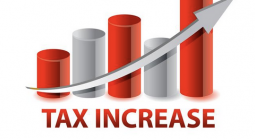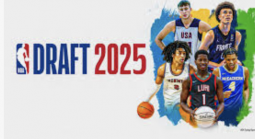National Journal: Upping The Ante For Online Gambling

Momentum Builds In Congress For Measures That Would License -- And Tax -- The Lucrative Business Of Internet Gaming
by Bill Swindell, National Journal
A law prohibiting Internet gambling is facing a serious challenge less than four years after it was enacted, with key House Democrats looking to build on support for a repeal when the Congress returns in September.
Rep. Jim McDermott, D-Wash., is pushing for a Ways and Means markup the week of Sept. 20 on his bill that would establish a federal tax for Internet bets that could bring in an estimated $42 billion over the next decade. Chairman Sander Levin, D-Mich., has not made a decision yet on marking up the bill, his spokeswoman said.
McDermott said he is hopeful for a vote after a companion bill that would set up a licensing and registration system for Internet gambling cleared the House Financial Services Committee on July 28 by a 41-22 tally. That vote margin was surprising because seven out of the 29 GOP members on the panel voted for the legislation sponsored by Chairman Barney Frank, D-Mass., which would allow states and tribes to opt out of the system and still continue a ban on sports gambling over the Web. Rep. Ron Paul, R-Texas, voted present.
"It reflects the reality that Republicans like Grover Norquist and FreedomWorks support it," Frank said.
The ban -- which was spearheaded by former Senate Majority Leader Bill Frist, R-Tenn., while he eyed a presidential run -- is not popular among many libertarian and free-market conservatives, Frank said.
"I think a lot of the poker players vote Republican," he said. "This is a wedge issue on their side."
The momentum for repeal picked up after a little-noticed position change in March by the American Gaming Association, which represents the gambling industry with the exception of Indian tribes. The association had been neutral on the issue, calling at most for a major federal study on the effects of lifting the ban. But companies such as Harrah's Entertainment, which sponsors the World Series of Poker, had been actively lobbying for legalization, viewing it as a chance to expand market share with a younger demographic lured by poker players on ESPN.
The industry has spent $13.4 million so far this year, with Harrah's leading the pack at $1.9 million, followed by the Interactive Gaming Council with $860,580 in expenditures.
The AGA's new position statement asserts that the organization has found sufficient technological safeguards exist to alleviate fears of money laundering, underage gambling, and participation by those who live in jurisdictions where it is illegal. The group thus endorsed a "properly regulated legal framework" that would protect those who chose to gamble, though it has not taken a stance on either the Frank or McDermott bills.
AGA President Frank Fahrenkopf said that most Vegas casinos have steadily become more comfortable with technology enabling online gambling, and they realize they must attract new market share so they do not end up like other industries that acted too late to keep up with technological change. "I think, by and large, most of them have reached a decision that they would like to have Internet gambling legally," Fahrenkopf said.
Despite the defections, most Republicans are still dismissive of the effort. Rep. Wally Herger, R-Calif., claimed during a May 19 Ways and Means hearing that the McDermott bill lacked support, and he noted that the 2006 law passed the chamber by a 317-93 vote. "It is pretty clear to me that Congress is not about to legalize, let alone legalize and tax Internet gambling," Herger said.
McDermott argues that his bill would recapture underground bets being placed by Americans, an estimated $12 billion within the last year. The measure would tax earnings of winners, place a 0.25 percent tax on all wagers, and levy a 2 percent tax on operators.
The revenue generated by his bill, McDermott said, would go toward social programs such as mental health care for young adults, child nutrition, and early education. "I want it for kids. I don't want it for fulfilling the deficit," he said. Some industry analysts privately concede, however, that the revenues generated would not be near the $42 billion estimate.
The Senate outlook remains cloudy because Senate Majority Leader Harry Reid, D-Nev., has not signed onto any repeal effort. Fahrenkopf noted that Reid has been opposed to Internet gambling based on his history as a former chairman of the Nevada Gaming Commission and preference for state-based regulation. Any Reid decision will be decided on whether legislation benefits Nevada gambling operations and their workers, said spokesman Tom Brede.
"Senator Reid has been clear that he will fight any effort that threatens jobs in Nevada," said Brede.













